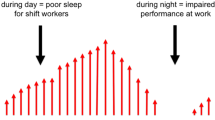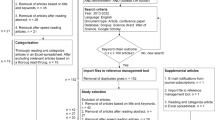Abstract
Seafaring is a profession and seafarers are just like any other ordinary workers of a work force. They should enjoy the same rights as accorded to workers ashore. Those rights include the right to life, right to payment of wages, right to healthy, safe and decent working conditions. People working ashore have variety of access to medical services and if they fall sick, the hospitals and clinics are at their disposal twenty-four hours a day. Seafarers have to depend on a ship’s first aid kit, thus, it is really important for seafarers to be allowed ashore to visit a clinic or other medical facilities whilst in port.
Due to the nature of ship operations, seafarers often work 14 to 16 hours a day. Even with the adoption of regulations by the International Maritime Organization’s Conventions and recommendations like Seafarer’s Hours of Work and the Manning of Ships Convention 1996, these conditions of excessive working hours still persist. Thus, there is an urgent need for relevant states and International Organizations to adopt a new approach to draft legislation relating to human factors and the need of seafarers.
Similar content being viewed by others
References
Asyali, E. 2003. Impact of man-machine interface on maritime casualties. 4th IAMU General Assembly, Alexandria, Egypt. http://www.iamu-edu.org/generalassembly/aga4/asyali.php.
Best, J.P. 1999. The virtual ship—A new capability in support of maritime forces. DSTO General Document.
Birnie, P.W. 1987. Piracy: past, present and future. InMarine Policy 11 (July): 163–183.
Bulkely, J. C. 2003. Regional cooperation on maritime piracy.Journal of Public and International Affairs 14.
Burns, R.H., S. Bateman, and P. Lehr. 2008. Lloyd’s MIU Handbook of Maritime Security. London: CRC Press.
Dubner, B.H. 1996.Human rights and environments disaster. Jawaharlal-Nehru University Publication, India.
Eide, E. 1999.Economics of criminal behaviour. University of Oslo, Norway.
Haveman, J. D., and H. J. Shatz. 2006. Protecting the nation’s seaports: Balancing security and cost. San Francisco: PPIOC.
Ho, J., and C. Z. Raymond. 2005. The best of Times, The worst of Times. Singapore: IDSS.
Kelleron, H. 1998. A challenge for the future, The ILO declaration of 1998 on Fundamental Principles and Rights.International Labour review 137(2).
ITF. 2006. Out of Mind & Out of Sight, Seafarer’s, Fishers and Human Right, ITF Report 2006.
Jones, S. 2006. Maritime security — A practical guide. London: The Nautical Institute.
Mejia, M.Q. Jr. 2003. Maritime gerrymandering.Journal of International Commercial Law 282: 153–175.
Mejia, M.Q. Jr, and P.K. Mukherjee. 2004. Selected issues of law and ergonomics in maritime security.Journal of International Maritime Law 10.
Mejia, M.Q. Jr. 2007. “Developing the concept of a security culture on board ships,” in
Mejia M.Q. Jr, Xu J.J. (eds.),Coastal zone piracy and other unlawful acts at sea. Malmö, Sweden: WMU Publications, pp. 158–169.
Moth, P. 2003. ISPS Code — A practical guide. Foreshore, Hayling Island, Hants.
OECD. 2003. Transport and Security, United Nation’s Economic and Social Council, London.
Realise. 2005. Final report on economic transport performance. www.realise-sss.org (accessed 23.07.2007).
Stanley Foundation. 2006. New power dynamics in Southeast Asia. Policy memo. Stanley Foundation, USA.
Author information
Authors and Affiliations
Corresponding author
Rights and permissions
About this article
Cite this article
Suppiah, R. ISPS and manning issues. WMU J Marit Affairs 8, 89–103 (2009). https://doi.org/10.1007/BF03195155
Issue Date:
DOI: https://doi.org/10.1007/BF03195155




